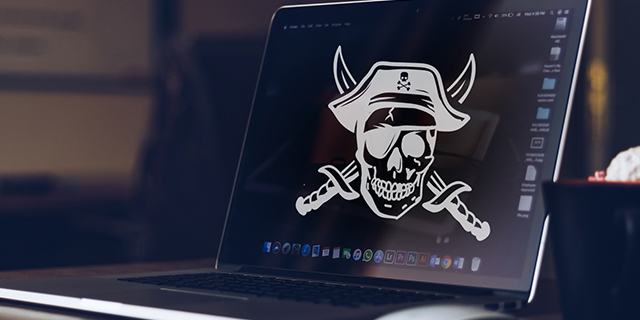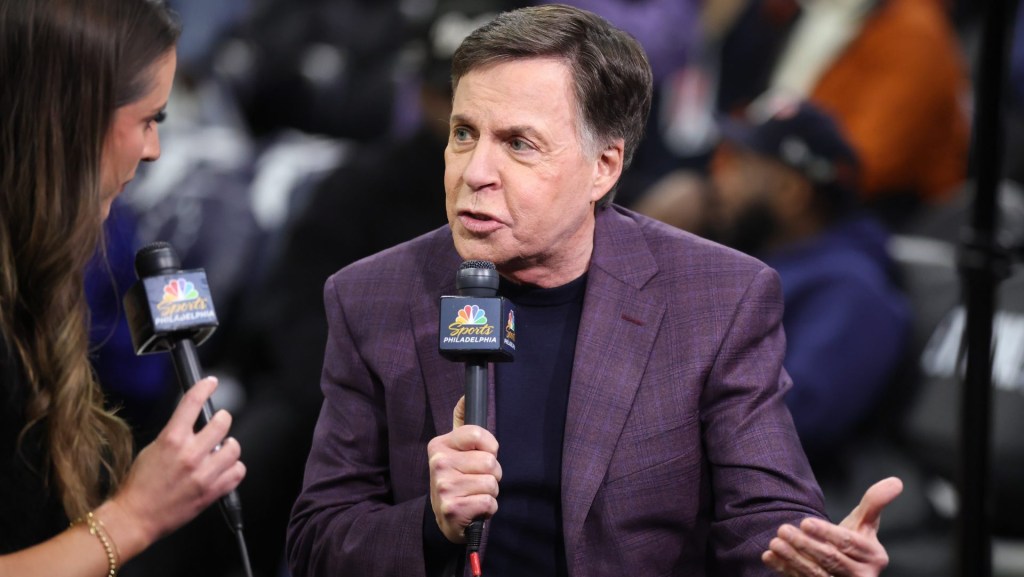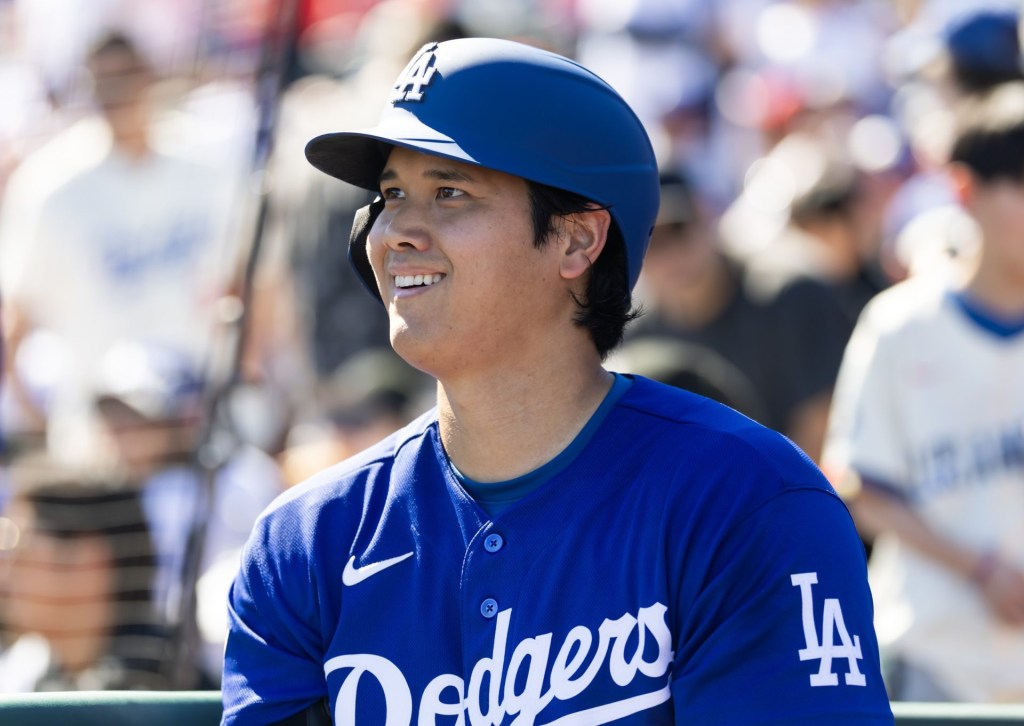
Photo Credit: Front Office Sports
On Tuesday night, Dwyane Wade and Dirk Nowitzki suited up for the final home games of their illustrious careers. For a subsection of National Basketball Association fans living beyond the reach of local cable broadcasts or unwilling to shell out $249.99 for a yearly subscription to NBA League Pass ($39.99 monthly), that didn’t necessarily mean they missed out on two tear-strewn final acts. Not as long as they were willing to bend U.S. copyright law, that is.
All it took was a quick hop over to Reddit, specifically the r/nbastreams subreddit, and they’d find a treasure trove of swiped NBA content, all accessible free of charge. There, the subreddit’s 474,000-odd subscribers share and can access links to pirated hi- and standard-def live streams, plus helpful tips about which streams were buggy or tended to crash at the least opportune moments.
To wit: Around 6:30 pm on Tuesday, a thread was posted with links to the Fox Sports Southwest, Fox Sports Arizona and NBA League Pass broadcasts of the Mavs-Suns tilt. A few minutes later, a similar thread went up for the game between the Heat and Sixers. Naturally, by the time the final buzzer had sounded, all of those links had been removed. Then the thread was deleted entirely, because why keep evidence of a crime lying around?
READ MORE: Budweiser Says Goodbye to Wade With New Sports Strategy
This is far from an NBA-centric problem. Pick a sport—any sport—and it’s all too easy to locate pirated broadcasts , most of which are hosted on sites abroad and are infinitely superior in quality to the janky popup-ad, malware-infused streams that were the norm as recently as a decade ago.
Reached by phone, Peter Cossack, the vice president of digital security for Irdeto, a leading online security company, said the streams have improved to such a degree that a “casual pirate” — as Cossack described someone who does not regularly consume illegal content — may not be aware that he or she is receiving stolen goods. Nowadays, “It’s very hard to tell between a legitimate and illegitimate site,” he said.
(The NBA, the National Football League, Major League Baseball, and Major League Soccer did not respond to a request for comment. The National Hockey League declined to respond to specific questions, but in a statement, a representative said: “The NHL actively enforces [sic] against illegal live streams of its games, including cooperating with law enforcement in pursuing criminal charges where appropriate.”)
To hear the leagues and online security professionals describe it, the piracy business is booming. It’s a “growing problem,” and also a “global” one, with illegal sites scattered across the world, per a letter sent in February to the U.S. Trade Representative by The Sports Coalition, a lobbying group which advocates on behalf of every major men’s pro league and the NCAA. (The Sports Coalition has described piracy as a “growing problem” going back to the first year of its existence in 2007.)
According to data provided to Front Office Sports by Irdeto, the number of “aggregated visits” to illegally-streamed broadcasts grew from 143 million to over 245 million from May 2016 to May 2017—a 71 percent increase. Beyond run-of-the-mill regular season games and the YouTube videos detailing exactly how to go about stealing NFL content, extralegal streams sprout like dandelions around a high-profile sporting event or Pay-per-view boxing match on YouTube, Facebook, and Twitter.
(YouTube and Twitter did not respond to a request for comment. Via email, a representative from Facebook asked Front Office Sports to provide examples of allegedly pirated content.
Within seconds, Front Office Sports found and shared two Facebook Live broadcasts of a Miami Marlins-Cincinnati Reds game, both of which included links to separate offshore streaming sites:
https://www.facebook.com/indriana.pustika.9/videos/105610210633677/
https://www.facebook.com/409714723149892/videos/1063746017141894/
In response, Facebook said: “we don’t have anyone available for an interview.” In a statement, the site said it spent “significant resources” preventing piracy. “Video publishers and media companies can provide reference streams of their live content in real time in Rights Manager, and if a match is found, immediate action is taken based on a rule set by the rights holder – for example, to block that stream,” the statement read.”By late Tuesday evening, the pages had either been removed by Facebook or deleted by their creator.)
The motivation for digital pirates is self-evident: money. One enterprising Toronto Raptors fan living in Egypt who went by the Reddit handle “velocityraps” claimed he earned between $15,000 and $20,000 per year via donations in exchange for posting the entire 2016-17 NBA season and the playoffs free of charge. Nor did he seem particularly worried about running into trouble with law enforcement. “It’s illegal, but who cares,” he told The Outline. “If they want to stop me, they have [sic] long way to go to catch me.”
After the article was published, velocityraps went dark and his account has since been suspended. In one of his final missives on Reddit, he shouted at the journalist who authored the piece: “FUCK YOU OWEN PHILLIPS.” [All-caps, his]
Shutting down one stream or even vast swathes of streams apparently hasn’t made much of a dent, either. As Yahoo Sports recently reported, those posting and profiting from illegal streams are far more nimble than the rights holders and the entities charged with enforcing the law:
[T]he pirates, in many cases, stay a step ahead. They ready backup. The actual humans cover their tracks. Takedown notices sent by leagues are ignored. Server blocking only works country-by-country, where laws permit, and domain-blocking sounds dandy until the criminals flip from “.com” to “.us” or “.live” and continue to operate. In 2012, the U.S. government seized 16 domain names as part of a piracy crackdown. Four of the 16 belonged to First Row Sports. But a day later, the self-proclaimed “heavyweight champion” of streaming reappeared at a new domain, and continues to live there today.
So if digital sports piracy is both rampant and seemingly unstoppable, how much financial harm is being incurred? That’s a far more difficult figure to nail down. Via Yahoo, some estimates have reached eleven digits:
London-based consultancy Ovum pegs it at 16 percent – $37.4 billion – of all digital TV and video earnings. Ontario-based Sandvine estimated a North American content provider shortfall of $4.2 billion in 2017. The most infamous case study might be the politically charged battle between sprawling pirate operation BeoutQ and Qatari-owned BeIN Sports, which claims the Saudi-based bootleg service has cost it more than $1 billion.
The only way to arrive at billion-dollar losses, though, is by concluding that anyone—from the leagues and the broadcasters to the online Pinkertons—is capable of accurately analyzing the granular functioning of a black market.
Assumptions necessarily abound in those calculations, and those assumptions are tilted in the rights holders’ favor, according to Rick Sanders, an attorney who specializes in copyright, trademark, and related litigation. Reached by phone, Sanders said that the staggering totals should be met with a raised eyebrow. Not only do those crunching the numbers fail to unpack their methodology, they further presume that anyone and everyone who watches a pirated stream would pay the full freight were illegal streams somehow eradicated from existence.
“That just isn’t common sense,” he said. Their work is not necessarily false or even wrong, to be clear, and there’s zero doubt the interested parties (rightly) believe piracy reduces profit. Rather, rights holders—all of whom very much want government entities and social media sites to assist in guarding the value of their product—have a clear motivation to describe “the worst-case scenario and then treat it as if it’s the most probable case,” said Sanders. “So I’d be skeptical.”
While HBO and Showtime have both gotten litigious and put in the work to tamp down on the proliferation of illegal streams, as have the leagues, Mark Taffet, the former HBO executive who helped create the cable company’s pay-per-view model, seemed to back up Sanders’ skepticism. In an interview with Yahoo in 2017, he said the proliferation of illegally streamed broadcasts of the 2017 Floyd Mayweather-Conor McGregor bout—239 streams, per data collected by Irdeto, which attracted ”approximately 2,930,598” sets of eyeballs—would not dramatically impact HBO’s bottom line. Instead, HBO divides potential viewers into two categories: “buyers” and “triers.”
[mc4wp_form id=”8260″]
The latter might check out an illegal stream, but they “were never going to buy [the pay-per-view fight], no matter what,” Taffet said. “They’re the triers.” (Taffet did not respond to an emailed request for comment.)
One trend that should cause some concern is the creation of a generation of viewers who expect all pro sports to be available free of charge, Sanders explained. There’s no telling to what degree that expectation is already being set. But as was the case with Napster in the early 2000s, “If I were the rights holders, it’d keep me up a little bit,” he said.
Similarly, Cossack added: “The biggest concern is the amount of piracy and making sure that you’re viewing that as competition to your platform because it is a direct competitor.”
In the United Kingdom, some legislative efforts appear to have stemmed part of the illicit tide. The English Premier League (EPL) announced that a grand total of “nearly 200,000” illegal streams were vaporized during the 2017-18 season alone thanks to a 2017 High Court Order which dragooned telecom companies into working on their behalf to shutter sites engaging in digital piracy. Charges and police raids also followed in its wake.
But Sanders isn’t optimistic about the prospect of similar legislation being passed in the U.S. for two reasons. One, there are vast differences in attitudes towards free expression both on- and offline between America and Europe, and previous attempts to bulk up anti-piracy measures like the Stop Online Privacy Act (SOPA) were strenuously opposed by a coalition of online activists and pretty much every major internet company. Two, to be effective, legislation would have to threaten internet Service Providers (ISPs) directly. That is to say, if piracy transpired on any given system, the ISPs would be held liable for participating in copyright infringement. Again, Sanders has his doubts.
“You couldn’t get this [High Order] in the United States, that’s for sure,” he said.
Coincidentally (or not), the only sport whose subreddit met an untimely end is soccer’s r/soccerstreams.
The subreddit’s moderators wrote in a now-deleted January post: “I regret to inform you all that a few days ago, the Reddit Admins got in touch with us about an impending ban of this subreddit if changes weren’t made. The only way to save it, from our perspective, was to cease all user related [sic] activity here.” Two spin-off soccer subreddits created by r/soccerstreams were also subsequently banned.
READ MORE: NBA2K League Eyes Growth In Second Season
In other words, Reddit is able to enforce its own copyright policy when it decides to do so—or when a league or broadcaster (or both) insists that their property is being pilfered. Of course, there’s no way to determine who or what entities may have put the screws to Reddit, but finding an illegal soccer stream is a bit harder and those ends were achieved without changing a single comma in the current U.S. statues.
Even if SOPA had passed or a rejiggered version eventually becomes the law of the land, “truly dedicated thieves will always find a way,” said Sanders. Given all the obstacles in place—websites which are hosted abroad; streaming content that often only exists and has value for a few hours; social media companies’ capriciousness when it comes to ridding themselves of bad actors—it’s hard to imagine a truly piracy-free future.
“A law is only as good the ability to enforce it,” Sanders said.



![[Subscription Customers Only] Jun 15, 2025; Seattle, Washington, USA; Botafogo owner John Textor inside the stadium before the match during a group stage match of the 2025 FIFA Club World Cup at Lumen Field.](https://frontofficesports.com/wp-content/uploads/2026/02/USATSI_26465842_168416386_lowres-scaled.jpg?quality=100&w=1024)
![[Subscription Customers Only] Jul 13, 2025; East Rutherford, New Jersey, USA; Chelsea FC midfielder Cole Palmer (10) celebrates winning the final of the 2025 FIFA Club World Cup at MetLife Stadium](https://frontofficesports.com/wp-content/uploads/2026/02/USATSI_26636703-scaled-e1770932227605.jpg?quality=100&w=1024)












